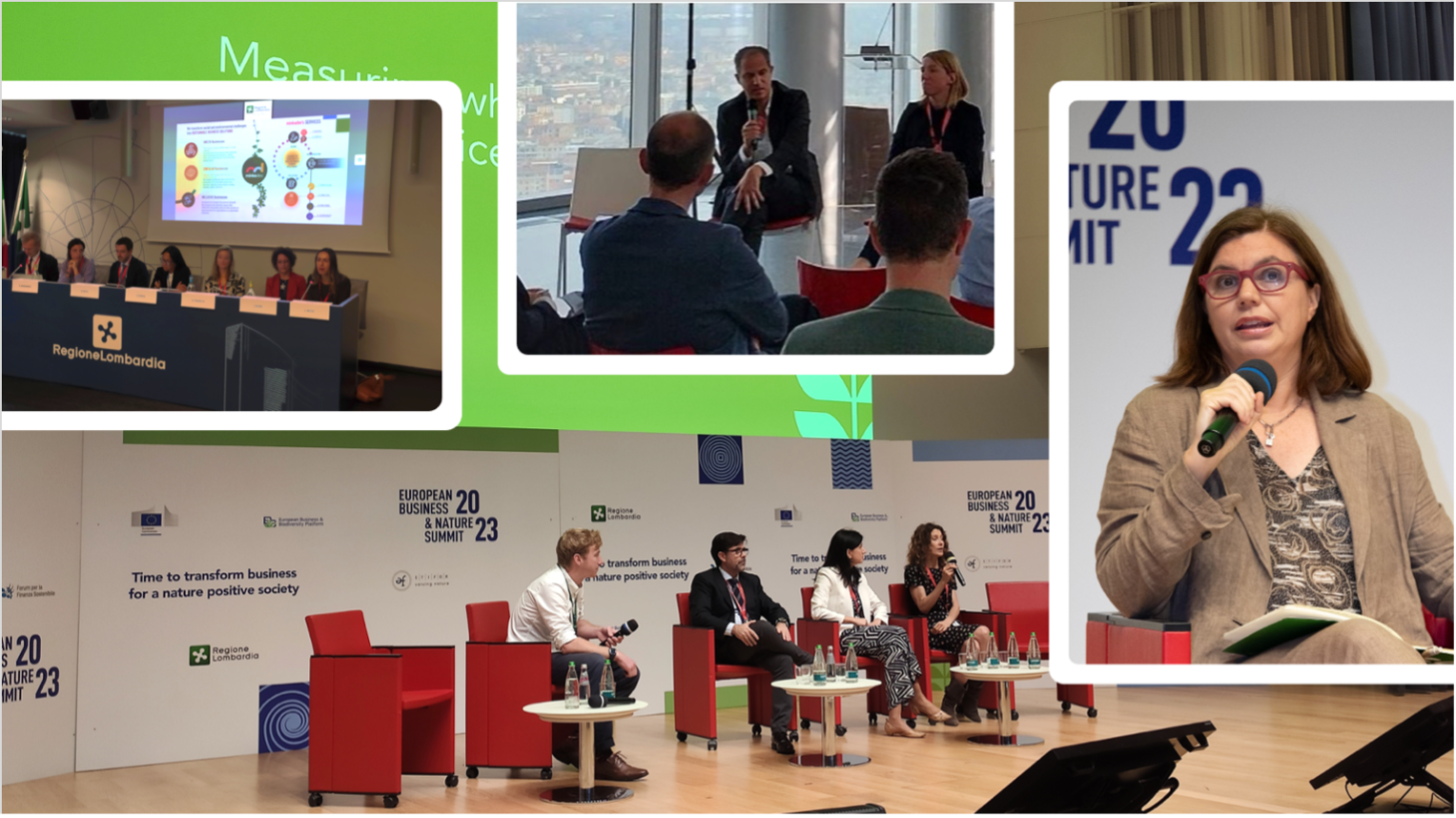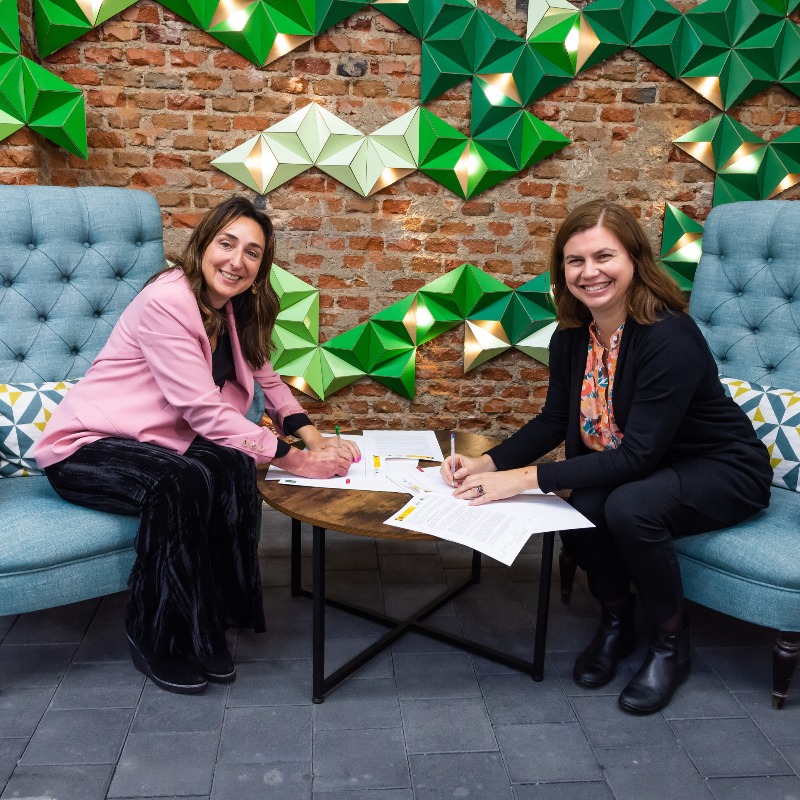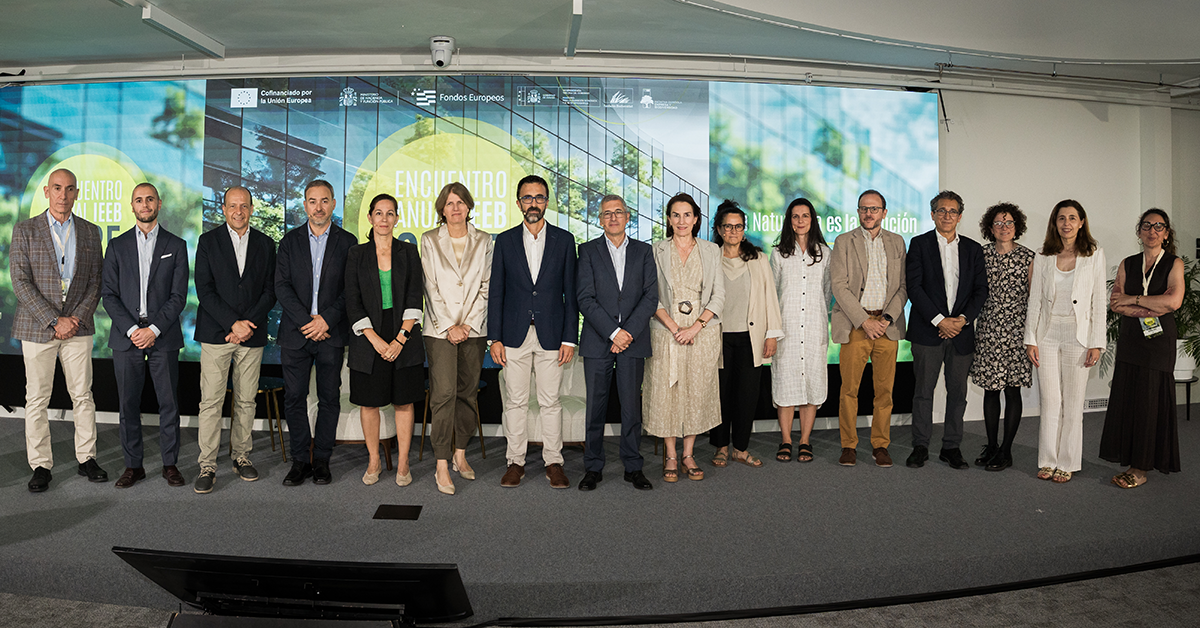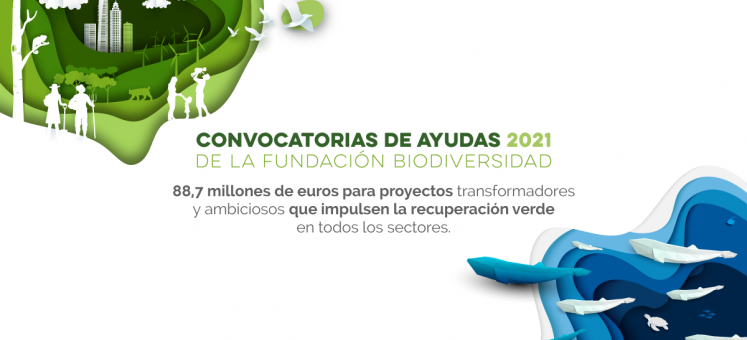The IEEB highlights Spain’s commitment to nature at EBNS 2023

The Spanish Business and Biodiversity Initiative (IEEB) played a prominent role in the 2023 edition of the European Business and Nature Summit (EBNS 2023) by participating in high-level dialogues and promoting the participation of its companies. This annual event, organised by the European Enterprise and Biodiversity Platform (EU B&B), focused on showcasing decisive transformative measures to implement biodiversity targets and pave the way towards a nature-positive society.
In addition to the participation of Elena Pita, director of the Biodiversity Foundation, in the high-level dialogue, AstraZeneca, Grupo Cooperativo Cajamar, Iberdrola and minkadev, all of them participants in the IEEB, shared their experience on how they are approaching the transformation towards a nature-positive society.
Elena Pita, director of the Biodiversity Foundation, outlined some of Spain’s priorities during its presidency of the Council of the European Union at the high-level dialogue “Delivering on the Montreal Promises: From Commitment to Action”. In relation to the business and biodiversity agenda, the IEEB will have a decisive role and pointed out that an approach aimed at understanding nature not only as a risk, but as a financial opportunity will be prioritized.
He also pointed out that a key element is having a clear political framework to promote the green transition. In this task, “nature restoration plans will play an important role as an effective tool for Member States to contribute to the achievement of restoration objectives and as an opportunity for the development of territorial integration policies that result in the provision of different ecosystem services,” the director stressed.
Finally, he emphasized the relevance of having science and the private sector as allies to promote the financing of nature from the perspective of opportunity.
THE VALUE CHAIN, KEY TO TRANSFORMING THE FOOD SYSTEM
Sergio Rodríguez Pérez, Director of Sustainable Finance at Grupo Cooperativo Cajamar, presented during the session “Transforming the global food system: establishing successful partnerships to involve all actors in the value chain” the Sustainable Food Systems initiative that he leads together with Forética. It is a project that is very much in line with the cooperative nature of the Cajamar Group, which is a financial institution that is part of the social economy, is particularly sensitive to the agri-food sector and has always been firmly committed to innovation and research as the most useful tool with which to benefit its members and customers and contribute to the development of the communities where it operates.
The initiative presented is focused on accelerating the sustainable transformation of food systems, promoting the transfer of knowledge and innovative solutions, sharing good practices and facilitating alliances between the different actors in the value chain. In addition, its crucial objective is to raise awareness in society about the importance of the agri-food sector and its essential role in the necessary transitions towards more sustainable and healthier practices.
MEASURING WHAT MATTERS
Iberdrola and AstraZeneca participated in the session “Measuring what matters: Standardising biodiversity measurement and reporting“.
Isabel Tomé, head of Biodiversity and Natural Capital at Iberdrola, highlighted the efforts they have been making for years to improve their measurement standards, implementing metrics that allow both improving knowledge of the different aspects of nature and services and improving decision-making tools. Examples of this are the studies of natural capital and the corporate environmental footprint that they carry out.
Although it may seem obvious, being clear about what you want to measure and the scope you want to cover is necessary to be able to define how to measure it, stressed the director of the Spanish energy company. Iberdrola’s 2030 Biodiversity Plan includes the objective of achieving a net positive impact on biodiversity by 2030. To this end, this plan includes the development of a biodiversity accounting framework for the material impacts of Iberdrola’s activities to serve as the basis for the action plans. To measure the positive net impact, the company has tested different metrics at the same facilities and, finally, has opted to define an accounting framework that allows them to quantify the impact on ecosystems and species. Another commitment made is to ensure that all its new developments and priority operating facilities will have a biodiversity action plan in accordance with its accounting framework by 2025.
For her part, Alba Ancochea, Head of Government Affairs and Sustainability at AstraZeneca, detailed how her company’s commitment to reducing the impact on nature and investing in biodiversity are based on understanding the relationship between operations and biological diversity, as well as delving into each of the main drivers of ecosystem change. In this sense, innovation is essential to reduce the impact on biodiversity. To address this aspect, AstraZeneca is leading the IMI-PREMIER collaboration, which aims to identify tools to quantify and address the environmental risks of pharmaceuticals, as well as following emerging best practices, for example, the work developed by the Task Force on Nature-Related Financial Disclosures (TNFD) and setting science-based biodiversity targets as they are methodologies such as the Science Based Targets for Nature of the Science Based Targets Network (SBTN) are evolving.
TOWARDS DEFORESTATION-FREE SUPPLY CHAINS
The new Regulation on Combating Deforestation and Forest Degradation (EUDR) entails significant challenges for companies included in this regulation. During her participation in the session “Towards a deforestation-free supply chain to contribute to a nature-positive future“, Juliana Mutis, CEO and founder of minkadev, explained that, although it is starting with the products with the highest volume of imports to the European market, it is also proposed to expand this list of relevant products in the revisions that will be made in the coming years.
The level of detail needed to carry out due diligence in the supply chain of raw materials will require technologies that allow information to be obtained in a transparent manner, which represents a great challenge, although it is not the only one. According to Mutis, the Bridge2Zero project aims to support entities affected by the EUDR regulation in complying with it, taking into account the realities experienced in exporting countries, in contexts of greater economic vulnerability. These local organizations have to be integrated into the traceability model through mechanisms that allow them to reach the last mile and implement them.
To achieve this and even reach the producers who manage a hectare of land, it is necessary to implement actions to align the actors in the supply chain.
Thinking about satellite technology or blockchain is not enough because of the infrastructure barriers that exist at the local level. In this circumstance, Bridge2Zero includes different sources of information (field, satellite and blockchain) and generates information patterns by integrating different verification sources according to the criteria of zero deforestation.
ACCELERATING ACTION AND FINANCING FOR BIODIVERSITY
The AZ Forest programme, shared by Alba Ancochea, Head of Government Affairs and Sustainability at AstraZeneca, in the session “The role of partnerships and blended finance in accelerating action and financing for biodiversity”, served to reinforce the importance and potential of partnerships, both in the public and private spheres.
This is an initiative framed in the pharmaceutical company’s sustainability strategy, specifically, in the area of environmental protection, within the framework of the commitment to avoid and reduce the impact on the ecosystem and invest in recovering nature and biodiversity. AZ Forest aims to plant and maintain more than 50 million trees by the end of 2025. It is directly related to the Zero Ambition Carbon initiative, as well as being integrated into a circular economy model. The programme has been developed in collaboration with local agents from all over the world and designed not only to reforest and recover plant species, but also to support special threatened animals, recover the hydrological situation, boost employment and the economic recovery of the environment by generating benefits in local communities. The selection of projects has rigorous criteria and is carried out following the recommendations of experts, through non-profit institutions, promoting public-private collaboration.




